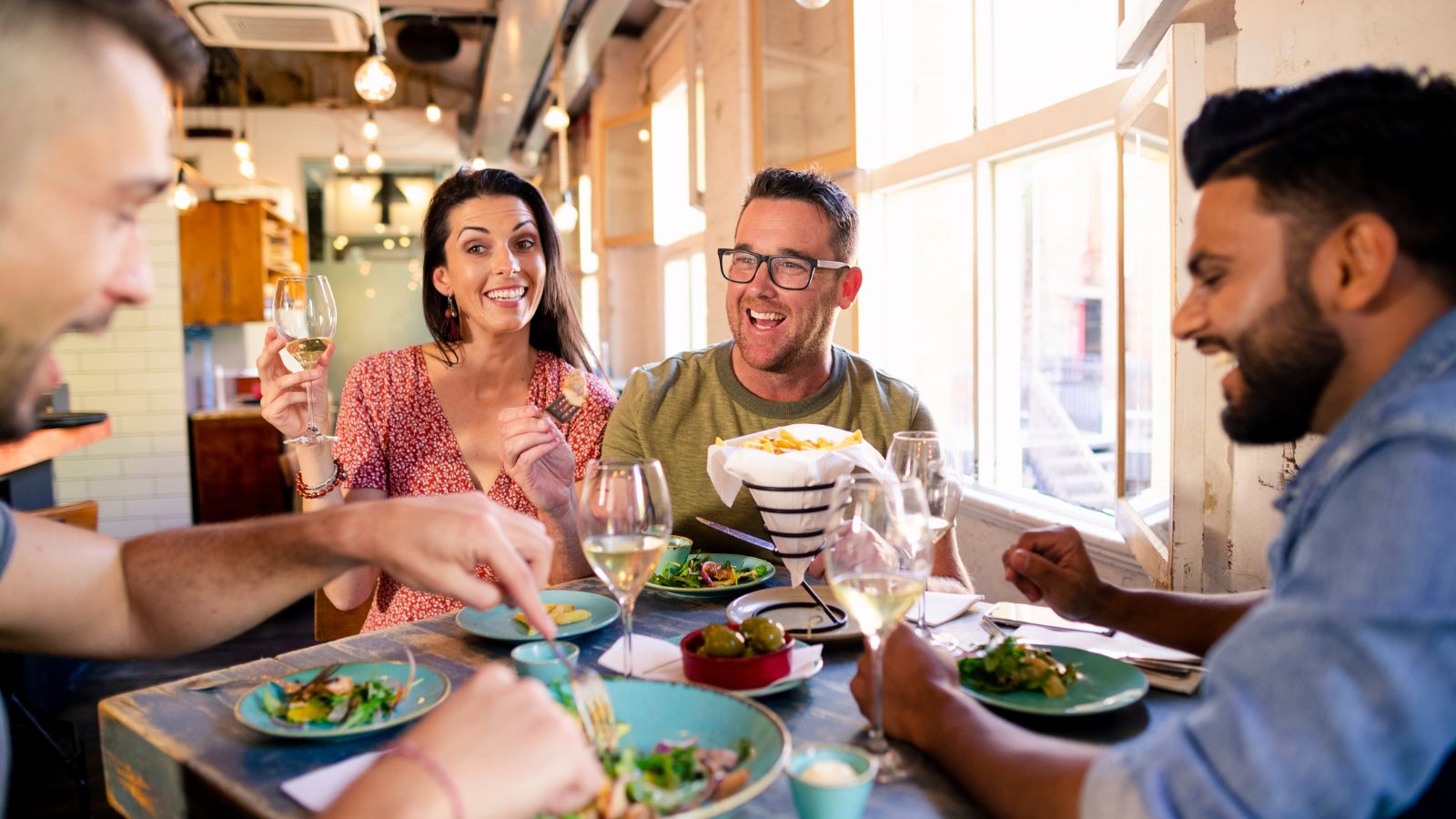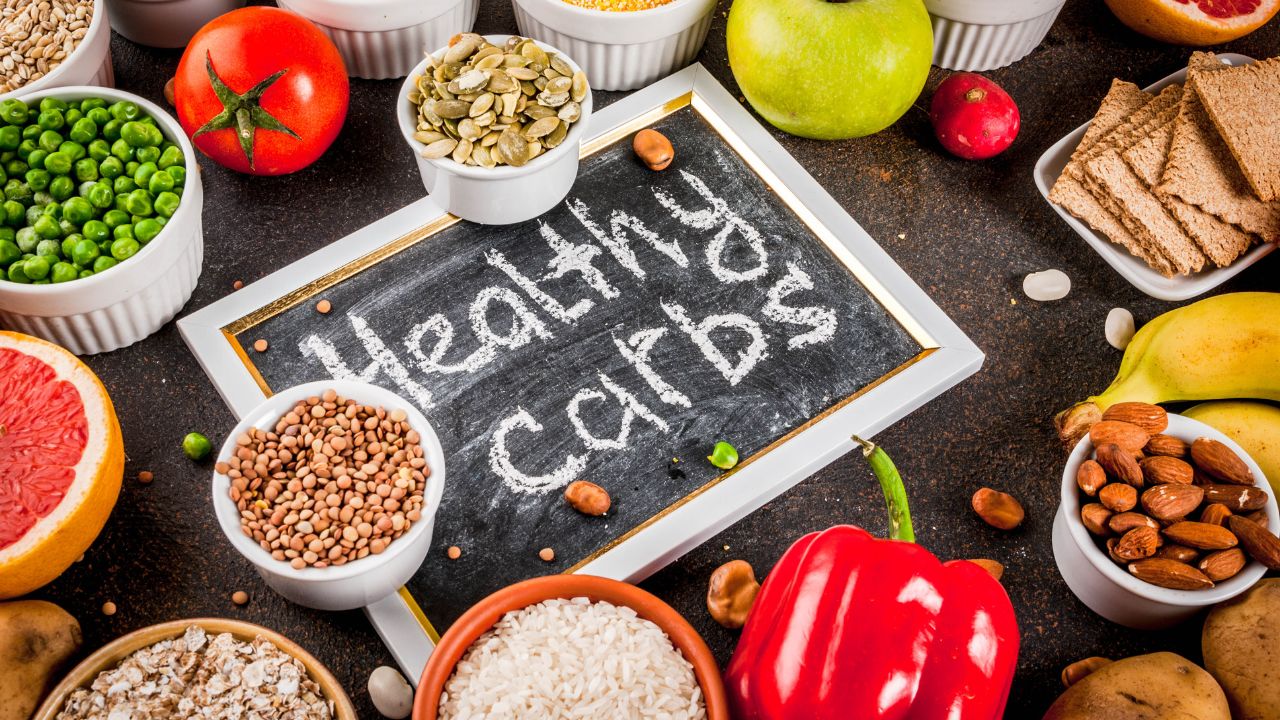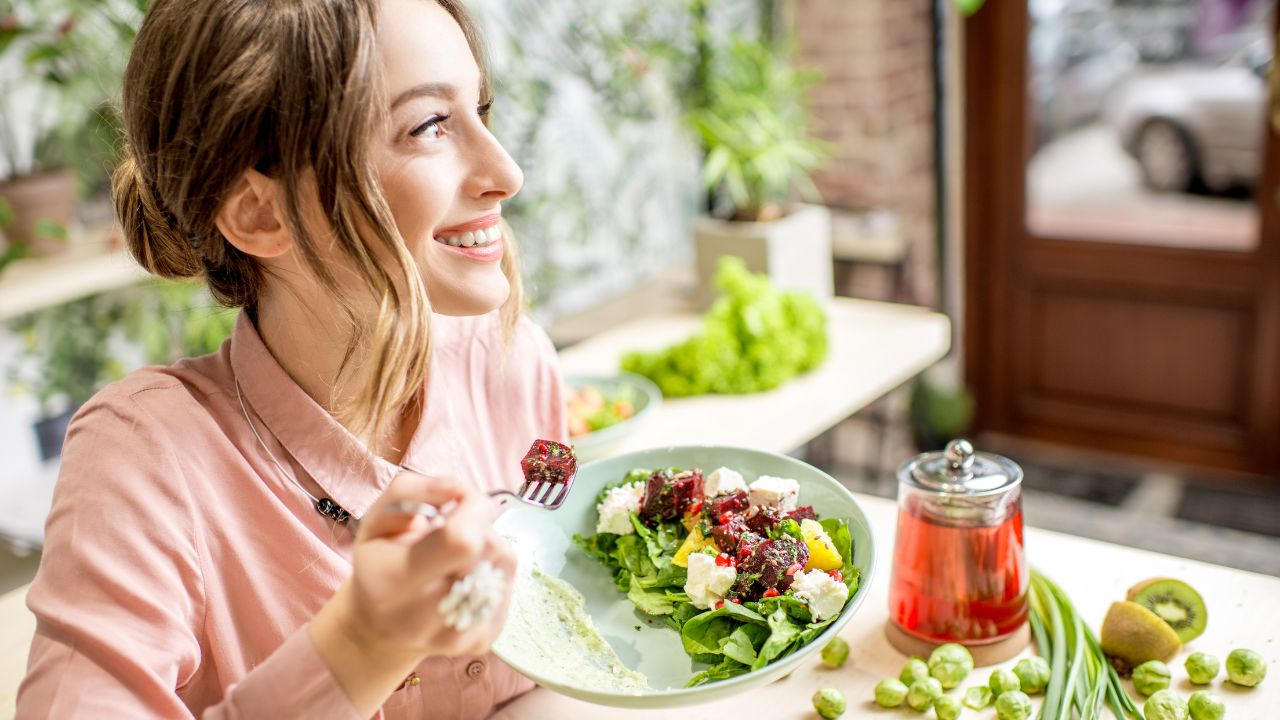Watching a loved one struggle with their nutrition and diet as they age can be difficult.
Poor eating habits can cause a decrease in strength, mobility, and energy levels.
Luckily, there are many ways to help an elderly loved one eat healthier and better.
From understanding the nutritional needs of seniors to providing practical tips on shopping and cooking, this article will provide useful advice on assisting an elderly loved one.
You can use elderly care as a tool for improving their diet and health.
1. Benefits of Healthy Eating
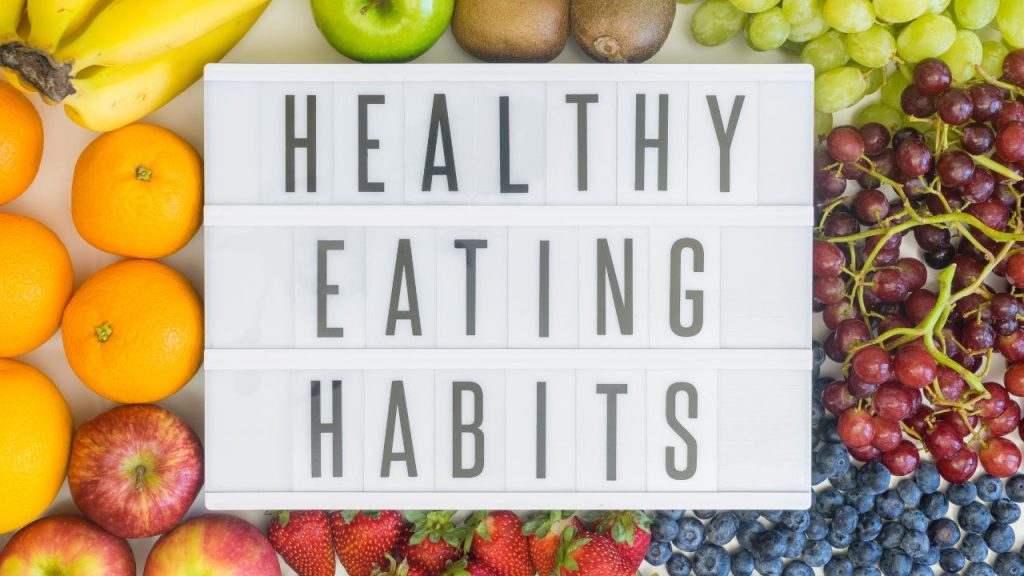
Healthy eating is a crucial aspect of aging gracefully. For an elderly loved one, eating healthy for good health and longevity is essential.
A balanced diet provides the energy, nutrients, and vitamins required for optimal body function.
The benefits of healthy eating are numerous, and they help seniors maintain their independence and quality of life.
Good nutrition improves digestive health, promoting regular bowel movement while reducing constipation.
It also helps reduce blood pressure levels by providing rich sources of potassium and magnesium.
Moreover, a balanced diet can improve cognitive function by preventing chronic diseases such as Alzheimer’s dementia.
It promotes better sleep patterns that assist in regulating hormones responsible for weight management.
Healthy eating also enhances mood and helps individuals avoid depression or anxiety that comes with malnutrition or low energy levels.
Overall, assisting your elderly loved ones to adopt a healthier diet can positively impact their physical and emotional well-being.
2. Understanding Dietary Needs
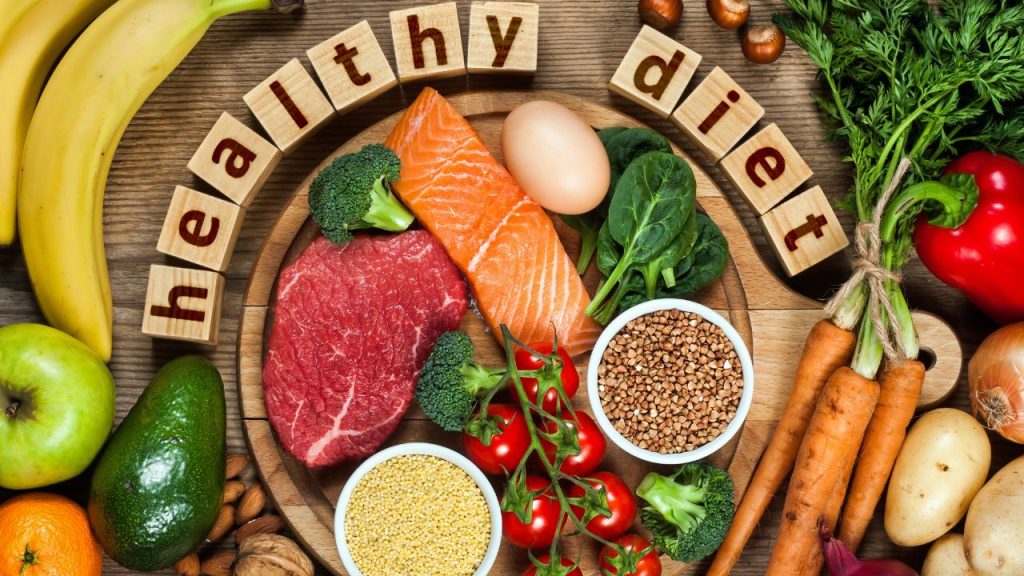
As our loved ones age, it is crucial to ensure they maintain a healthy and balanced diet.
However, understanding their dietary needs can be challenging, especially if they have specific health conditions such as diabetes or heart disease.
With the right knowledge and approach, you can assist your elderly loved one in eating healthier and better.
The key to understanding dietary needs is consulting with a healthcare professional or registered dietician who can provide personalized recommendations based on your loved one’s medical history and current health status.
Additionally, it is crucial to consider any medications they may be taking that could impact their food intake or digestion.
3. Shopping and Meal Prep Strategies
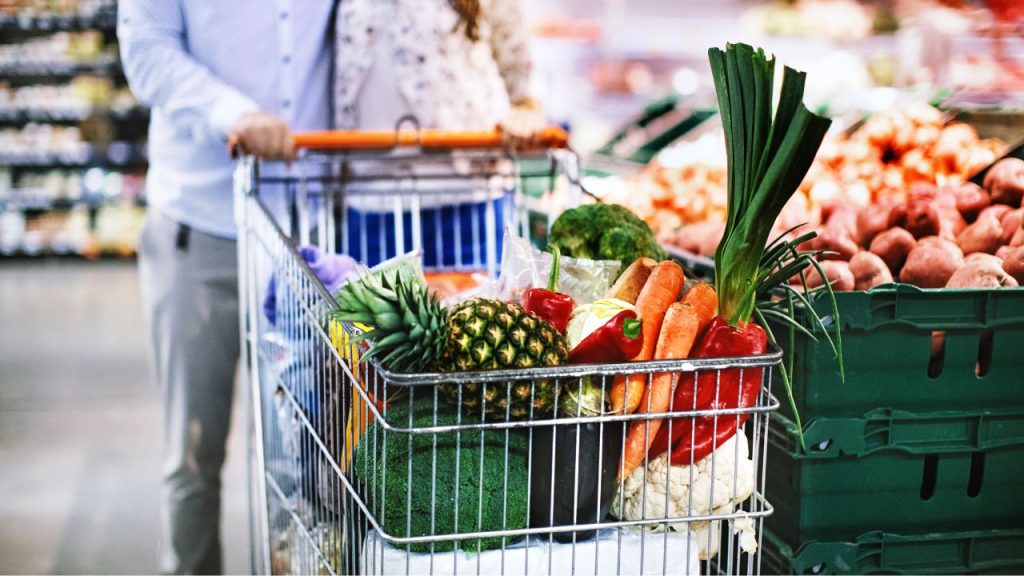
With age, nutritional needs often shift and become more complex. With some planning and strategy, you can help your elderly loved one eat healthier and better through shopping and meal prep.
Firstly, take the time to go grocery shopping with them. It will not only allow you to spend quality time together but also allows you to introduce new nutrient-rich foods.
Prioritizing whole foods such as fruits, vegetables, lean proteins, and healthy fats is important over pre-packaged processed meals or snacks.
Please encourage them to try new flavors by selecting different product types or suggesting recipes with seasonal ingredients.
Secondly, implement a weekly meal plan to make sure your elderly loved one receives all the nutrients they need without getting bored with the same daily meals.
Meal planning also helps reduce food waste and saves time in the kitchen.
4. Boost Nutrients with Supplements

Supplements can help bridge the gap and provide essential vitamins and minerals that may be lacking in their diet.
Here are some tips on how supplements can assist an elderly loved one in eating healthier and better:
- Start with a multivitamin: A daily multivitamin is an excellent way to ensure your loved one gets all the nutrients they need.
- Look for a supplement designed specifically for seniors with unique nutritional needs.
- Consider calcium and vitamin D, as these nutrients are essential for bone health, especially in older adults at risk of osteoporosis or other bone-related issues.
Omega-3 fatty acids Found in fish oil supplements are these healthy fats and vital for heart health and brain function.
5. Overcoming Challenges to Healthy Eating
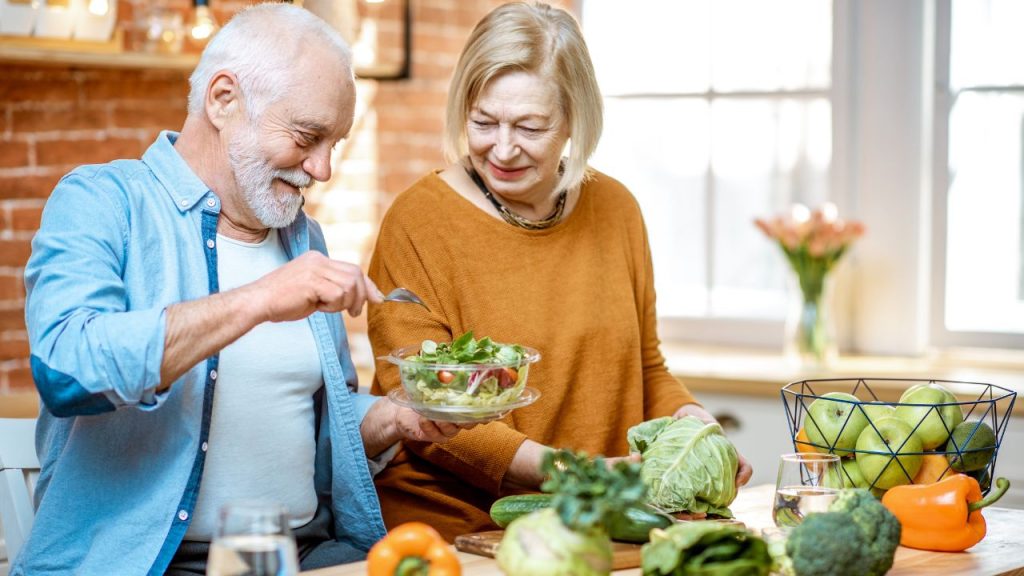
In aging, some common challenges can interfere with an older adult’s ability to maintain a balanced diet.
These may include a lack of appetite, difficulty chewing or swallowing, and limited mobility impacting shopping and meal preparation.
Recognizing and addressing these challenges is important to ensure your loved one can achieve a healthier diet.
For instance, if your loved one struggles with a lack of appetite, consider serving smaller meals throughout the day rather than three large ones.
Including nutrient-dense foods like nuts, seeds, and avocados can ensure they get adequate calories and nutrients even in smaller meals.
If chewing or swallowing is a problem, foods can be prepared in a way that makes them easier to eat, such as blending or pureeing.
Limited mobility might make grocery shopping or meal preparation challenging. In such cases, consider organizing a grocery delivery service or enlisting the help of a caregiver or meal delivery service.
Above all, patience and understanding are key to overcoming these challenges.
6. Involving Elders in Meal Preparation
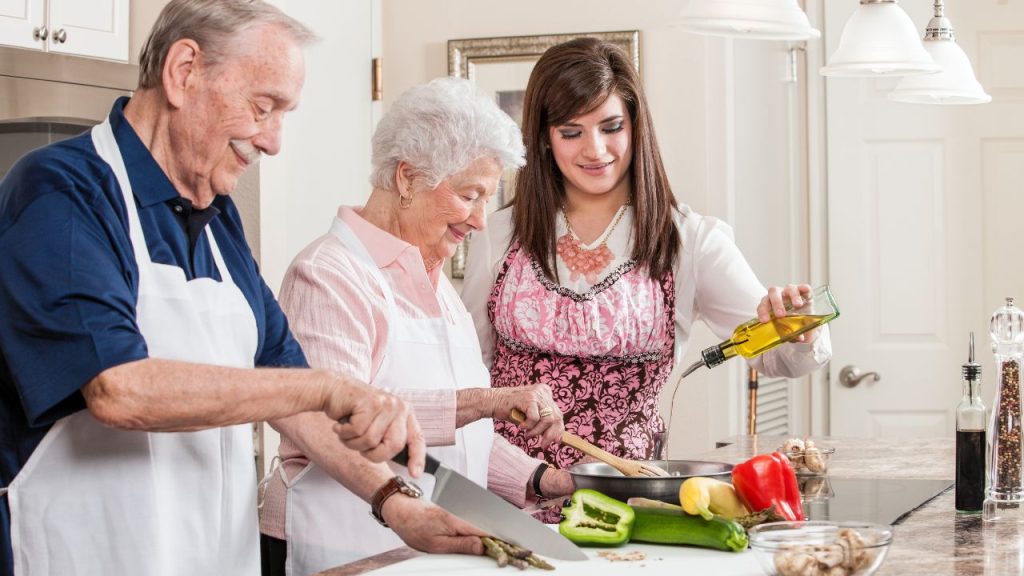
Involving your elderly loved ones in meal preparation can make them feel useful and engaged and give them some control over their diet.
They can choose the ingredients they prefer and are more likely to eat a meal they’ve had a hand in preparing.
Cooking together also allows you to spend quality time and strengthen your relationship.
7. Monitoring Hydration

Hydration is another essential aspect of senior nutrition. As we age, our thirst can diminish, leading to dehydration.
Therefore, remind your loved one to drink water regularly and include foods with high water content, such as cucumbers, melons, or soups, in their diet.
8. Cultural and Personal Preferences
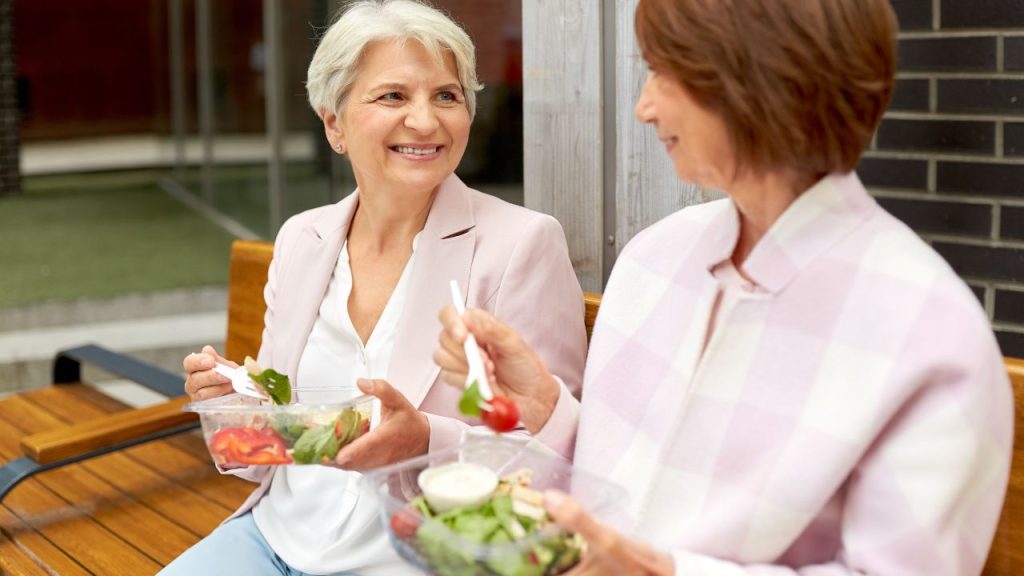
Remember, everyone has their preferences when it comes to food. Dietary changes can be more successful if they incorporate your loved one’s cultural and personal preferences.
It is crucial to ensure that the healthier versions of their favorite dishes are included in their diet. This will make transitioning to a healthier lifestyle easier and more enjoyable for them.
9. Regular Check-ups and Feedback

Regular health check-ups can provide valuable information about your loved one’s nutritional status and potential deficiencies. This can guide necessary adjustments to their diet or supplement regime.
Regular feedback about their eating habits, preferences, and any challenges can also guide dietary modification.
10. Importance of Exercise
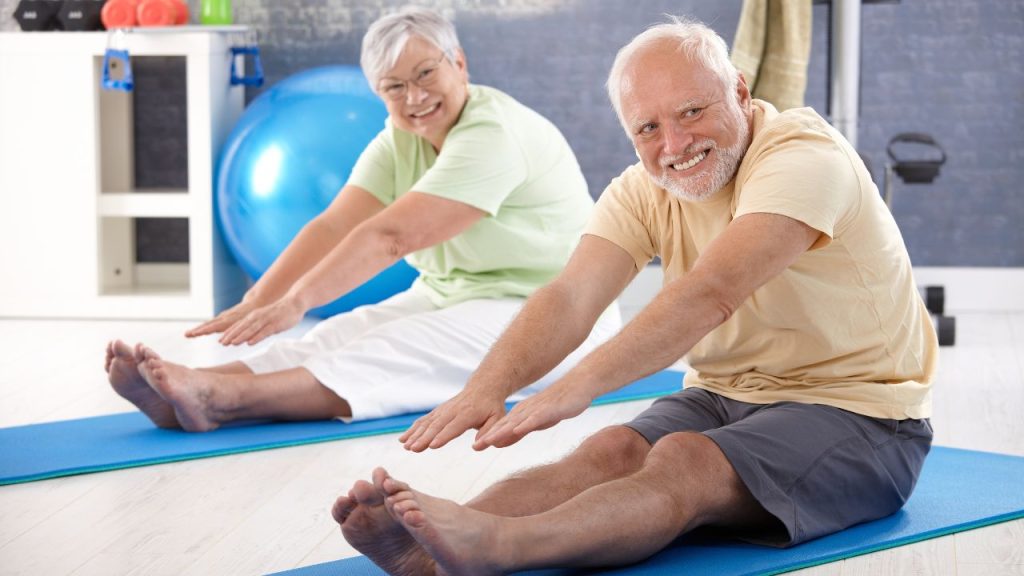
While nutrition plays a significant role in healthy aging, it is equally important to maintain physical activity.
Regular exercise not only helps in managing weight and maintaining muscle mass but also improves appetite and digestion.
Encourage your elderly loved one to engage in light physical activities like walking or gardening, depending on their physical capacity.
Conclusion
Assisting an elderly loved one to eat healthier and better can be a fulfilling journey.
It requires understanding their dietary needs, being proactive in meal planning and shopping, considering supplements, addressing challenges to healthy eating, and involving them in meal preparation.
Remember their hydration needs, cultural and personal food preferences, and the importance of regular exercise.
You can significantly improve their health and quality of life through patience, compassion, and understanding.
Regular check-ups and feedback can help adjust the approach to meet their evolving needs.

